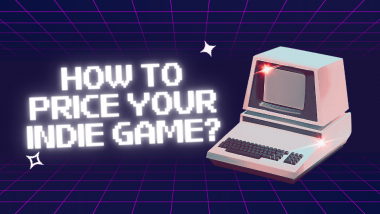For aspiring indie game developers, breaking into the competitive gaming industry with a fresh game idea can be both exhilarating and daunting. To find success, one must master the delicate dance between innovation and market appeal. This article will delve into the essentials of creating and selling a game idea, focusing on a series of do’s and don’ts to guide developers in navigating this complex landscape.
Setting the Stage: The Reality of Selling Game Ideas Today
The modern gaming landscape is a melting pot of creativity, where the balance of innovation and market appeal plays a pivotal role. It’s a world where the freshness of an idea is as crucial as its potential market success.
Do: Focus on Originality and Creativity
Injecting originality and creativity into your game concept is vital. These elements serve as the heartbeat of your game, defining its essence and potential to stand out in the crowded market.
Don’t: Ignore Market Trends and Player Preferences

While uniqueness is crucial, turning a blind eye to current market trends and player likes and dislikes can be detrimental. Knowing what the player wants and what the market is leaning towards ensures that your game has a fighting chance to flourish.
Do: Develop a Clear and Concise Game Concept
A clear and concise game concept acts as the north star for all your development efforts. It provides a roadmap, ensuring coherence and focus throughout the development journey.
Don’t: Forget to Validate Your Idea with Others
Validation is a cornerstone in the development of your game idea. Feedback from peers and potential players can offer invaluable insights and highlight areas for refinement and enhancement.
Understanding Your Audience
Who you’re creating for is as important as what you’re creating. A clear understanding of your audience lays the foundation for a game that resonates and connects.
Do: Define Your Target Audience Clearly
Clearly defining your target audience ensures that your game’s features and aesthetics are tailor-made to meet their preferences and needs, enhancing the game’s appeal.
Don’t: Assume Everyone is Your Audience
Casting your net too wide can result in a diluted and unfocused game. Aiming to please everyone might lead to pleasing no one, and specificity in audience targeting is key to avoiding this pitfall.
Do: Align Your Game to Player Interests and Needs
Aligning your game’s mechanics and features with player interests fosters player satisfaction and deepens engagement, creating a more enriching gaming experience for your audience.
Don’t: Overlook the Importance of Player Feedback

Neglecting player feedback can lead to missed opportunities for improvement and refinement. It’s crucial to listen to and act on the feedback received to enhance the game’s overall quality and appeal.
Preparing Your Pitch
When preparing your pitch, every aspect, from content to delivery, should be meticulously crafted and rehearsed to create a compelling narrative about your game idea. This process is vital as it can greatly impact how potential partners, investors, or publishers perceive the value of your game.
Do: Keep Your Pitch Clear and Engaging
A clear and engaging pitch is crucial in conveying your game idea effectively. It is essential to articulate the unique aspects and the potential of your game concisely and excitingly. Use accessible and compelling language to make your game idea relatable and captivating. Engage your audience with enthusiasm and passion, helping them envision the potential of your game.
Don’t: Overload Your Pitch with Unnecessary Details
While it’s essential to provide enough information to understand your game’s concept and potential, overloading your pitch with too many details can be counterproductive. Avoid delving into intricate technical details or features that don’t contribute to the overall understanding of your game’s value. Keep your audience engaged by maintaining a balance between detail and brevity, ensuring that your main points are highlighted and remembered.
Do: Use Visuals and Demos Effectively
Visual aids and demos can significantly enhance your pitch by giving a tangible glimpse into your game’s world and mechanics. Use high-quality, relevant visuals to support your narrative and demonstrate your game’s appeal. If possible, prepare a polished, concise demo that showcases the key features and gameplay mechanics of your game. Ensure that any visual or demo is well-integrated into your pitch and adds to the overall understanding of your game idea.
Don’t: Underestimate the Power of a Well-Prepared Demo
A demo can serve as a powerful tool to showcase your game’s potential and your commitment to quality, providing a concrete representation of your vision. Therefore, it’s imperative to ensure that any demo you present is polished, functional, and well-prepared. A poorly prepared demo can raise doubts about your capability and professionalism, undermining the perceived value of your game idea. Invest the necessary time and resources to prepare a demo that can effectively support your pitch and leave a lasting impression.
Finding the Right Company
Aligning with the right partners is crucial for your game’s journey. It can provide the support and resources necessary to bring your vision to life.
Do: Research and Identify the Right Partners
Extensive research to find companies that align with your game’s vision and genre is crucial. The right partner can offer invaluable support and resources to realize your game idea.
Don’t: Approach Every Company Under the Sun
Targeting specific, well-researched companies increases your chances of finding a compatible partner. A scattergun approach can waste time and diminish the perceived value of your game idea.
Do: Network and Build Relationships within the Industry

Building relationships within the industry can open doors to new opportunities and collaborations. Networking can be a treasure trove of insights and potential partnerships.
Don’t: Neglect the Importance of a Good First Impression
First impressions matter. Presenting yourself and your game professionally from the get-go can foster trust and set the stage for successful collaborations..
Do: Present with Confidence and Clarity
Confidence and clarity in presentation are pivotal. Speak with a strong, clear voice, maintain eye contact, and use positive body language. Exhibit enthusiasm for your game idea and convey its potential with conviction. Avoid using fillers such as ‘um’ and ‘uh’, as they can make you appear less confident. Practicing your pitch multiple times beforehand can help in delivering it with more assurance and precision.
Don’t: Forget to Anticipate and Prepare for Questions
Expect that there will be questions and prepare comprehensive responses in advance. Anticipating questions demonstrates thorough knowledge of your game and its market, showcasing your commitment and professionalism. Being caught off guard by questions can make you appear unprepared and unsure, tarnishing the impression you make. By being well-prepared to address inquiries, you reinforce your credibility and the viability of your game idea.
Do: Be Open to Feedback and Criticism
Receiving feedback and criticism graciously is crucial. Listen attentively to any comments or concerns raised, and respond thoughtfully and respectfully. Use feedback as an opportunity to address any doubts and to further clarify and emphasize the strengths of your game idea. Displaying openness and receptiveness to feedback not only enhances your likability but also illustrates your commitment to continuous improvement and collaboration.
Don’t: Get Defensive or Argumentative during the Pitch
It’s vital to maintain composure and professionalism, even if you face criticism or skepticism. Avoid getting defensive or argumentative, as it can damage the rapport you are trying to build. Instead, seek to understand the concerns raised and address them calmly and rationally. Demonstrating emotional intelligence and resilience in such situations can strengthen your character and the impression you leave behind.
The Pitching Process

How you manage the pitching process from preparation to execution can greatly impact the success of your game idea.
Do: Plan and Practice Your Pitch Thoroughly
Thorough planning and practice can hone your pitch to perfection, ensuring a smooth and compelling presentation that can captivate your audience.
Don’t: Wing it and Hope for the Best
An improvised and unprepared pitch can appear unprofessional and reduce the perceived value of your game idea. Preparation is key to avoiding this pitfall.
Do: Be Patient and Persistent
Persistence and patience can be your greatest allies in the challenging journey of selling your game idea. Keeping the faith and staying the course can eventually lead to success.
Don’t: Let Rejection Discourage You
Rejections are inevitable but should not be disheartening. Learning from each experience and maintaining perseverance can eventually lead to the realization of your vision.
Protecting Your Game Idea
Safeguarding your intellectual property is crucial in the commercial world of game development.
Do: Understand Intellectual Property Rights

A solid understanding of intellectual property rights is essential to protect your game idea from unauthorized use and exploitation.
Don’t: Share Your Idea Without a Non-Disclosure Agreement
Disclosing your game idea without proper legal safeguards can expose it to the risk of theft or exploitation. A Non-Disclosure Agreement is a crucial protective measure.
Do: Seek Legal Advice When Needed
Legal counsel can provide valuable advice on protecting your intellectual property and navigating contractual arrangements, helping avoid potential legal pitfalls.
Don’t: Ignore the Legal Aspects of Selling a Game Idea
Neglecting the legal dimensions of selling a game idea can lead to loss of rights and potential legal disputes. Being legally savvy is crucial to safeguard your interests.
Mistakes to Avoid
Learning from mistakes and staying informed are pivotal in navigating the gaming industry.
Do: Learn from Your Mistakes and Failures
Every mistake offers a learning opportunity. Embracing failures and learning from them can foster growth and enhance your approach to game development.
Don’t: Repeat the Same Mistakes Twice
Repeating mistakes can hinder progress and diminish your credibility. Reflecting on and learning from your errors is crucial to avoid making the same mistakes again.
Do: Stay Informed About Industry Trends and Best Practices
Keeping abreast of industry trends and best practices can provide insights and guide your development efforts, helping align your game with market demands and player preferences.
Don’t: Become Complacent and Stop Learning
Complacency can be a silent killer in the fast-evolving gaming industry. Continual learning and adaptation are key to staying relevant and competitive.
Conclusion
Reflecting on experiences and continually striving for improvement are essential in the pursuit of success in the gaming industry.
Do: Reflect on Your Experience and Seek Continuous Improvement
Reflection and a commitment to improvement can help in refining your approach and enhancing your game development skills, paving the way for future success.
Don’t: Lose Passion and Give Up on Your Dreams

Maintaining passion and perseverance, even in the face of challenges and failures, is crucial. Giving up can mean letting go of the potential for great achievements.
Do: Share Your Knowledge and Experience with Others
Sharing your insights and experiences can contribute to the collective knowledge of the gaming community, fostering mutual growth and development.
Don’t: Forget to Keep Innovating and Pushing Boundaries
Innovation is the lifeblood of the gaming industry. Continually pushing boundaries and exploring new frontiers can lead to groundbreaking developments.
Do: Encourage Others to Share Their Stories and Insights
Inspire fellow developers to share their journeys and insights, enriching the collective knowledge and experience of the gaming community.
Don’t: Hesitate to Reach Out and Connect with Fellow Developers
Building connections and exchanging knowledge can open doors to new opportunities and collaborations, fostering mutual growth and development.
Do: Keep Exploring and Learning in the Gaming World
Continual exploration and learning are crucial to staying informed and competitive in the ever-evolving gaming landscape.
Don’t: Underestimate the Impact of Your Contribution to the Industry
Every contribution, no matter how small, can have a significant impact on the gaming industry, shaping its future and inspiring others.
This guide has provided a comprehensive overview of the crucial do’s and don’ts in selling a game idea in the modern age, offering insights and advice on every step of the journey, from conception to protection of your game idea. Keep pushing the boundaries, learning from every step of your journey, and contributing to the vibrant tapestry of the gaming world.






